Nutrition for Healthy Eyes
Featuring
Dr. Ward Bond, PhD
Nutritionist and TV Host
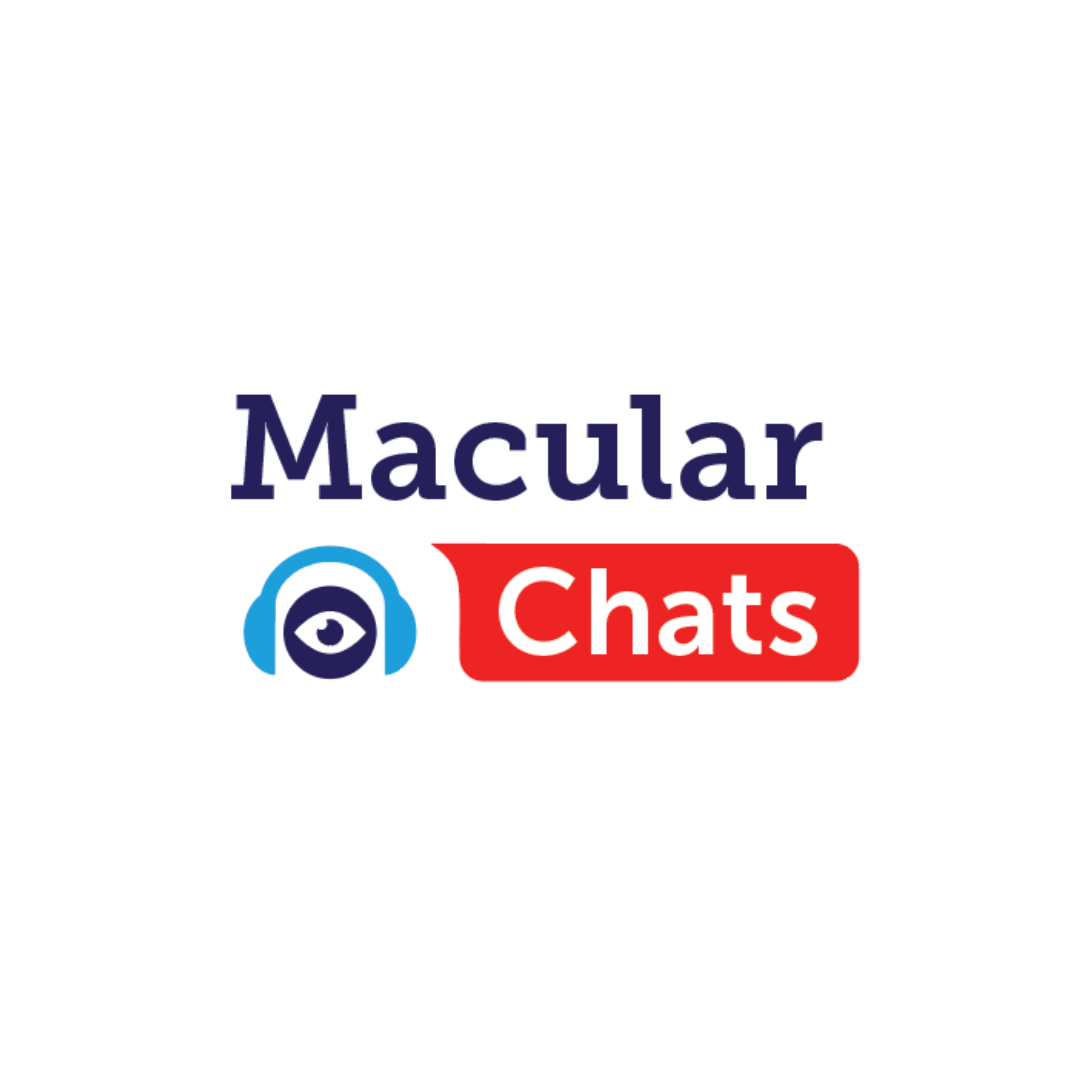




Dr. Ward Bond, PhD
Nutritionist and TV Host

Dr. Ward Bond, who regularly appears in the media and before public audiences, discusses the vital role of nutrition in reducing the risk and progression of age-related diseases such as macular degeneration and glaucoma.
BrightFocus Foundation
Nutrition for Healthy Eyes
March 29, 2017
Transcript of Teleconference with Ward Bond, PhD
1:00–2:00 p.m. EDT
The information provided in this transcription is a public service of BrightFocus Foundation and is not intended to constitute medical advice. Please consult your physician for personalized medical, dietary, and/or exercise advice. Any medications or supplements should be taken only under medical supervision. BrightFocus Foundation does not endorse any medical products or therapies.
Please note: This Chat has been edited for clarity and brevity.
MICHAEL BUCKLEY: Hello, I am Michael Buckley from BrightFocus Foundation. Welcome to today’s BrightFocus Chat, “Nutrition for Healthy Eyes.” If today is your first time on a BrightFocus Chat, welcome. Let me take a moment to tell you a little bit about BrightFocus and what we will do on today’s Chat. BrightFocus funds some of the top scientists in the world. We support scientists who are trying to find cures for macular degeneration, glaucoma, and Alzheimer’s. We share the latest news from these scientists with families that have been impacted by these diseases. BrightFocus Chats are another way of sharing this information.
Today we are very excited to be joined by Ward Bond. Ward is in Houston, Texas, and holds a doctorate in nutrition. He is a regular on TV, radio, newsprint, and also in public speaking. I’ve had the opportunity to get to know and become friends with Ward over the past year, and I think all of you will be very impressed by his energy, his enthusiasm, and his real passion for sharing information to help people live longer and healthier lives. Today we are going to talk about the connection between nutrition and your vision health. Ward is going to share a lot of information with us.
Ward, I’d like to welcome you to today’s BrightFocus Chat.
DR. BOND: Thank you so much, Michael.
MICHAEL BUCKLEY: I wanted to start off with a very basic question about the connection between nutrition and vision health. I think most of us, when we think of nutrition and what we eat, think of the consequences of either weight gain or weight loss. Most of us understand the difference in what will happen if you eat a lot of salads or a lot of Twinkies or hot fudge sundaes. I think people understand it that way, but what is the connection between nutrition and your eyes?
DR. BOND: The connection between nutrition and our eyes has to do with the connection of nutrition with the every part of the body. Everything has to work together. The thing about our eyes—I think millions of people take their eyesight for granted. When it comes to the foods we eat, I think it really shows that sometimes we are not thinking that the food that we put into our body can impact our eye health.
We think about protecting our vision by putting on sunglasses when we walk outside, or putting a cap on our head with a visor to protect our eyes from excess sunlight, but everything we eat and everything we put in our mouth will impact our eye health. I was thinking about it today, that the first thing you see when you walk into a supermarket is the produce department. It is the most important part of the grocery store, and that is where we need to be doing 90 percent of our shopping. I stress to so many people, and to a lot of my friends and clients, that everything we eat will matter. Not just for today, but it is going to matter 5 years down the road or even 10 years down the road. It is vitally important that we do eat right and take note of that.
MICHAEL BUCKLEY: You’re certainly right. I remember growing up as a kid, my mother would tell me to eat carrots so I would have healthy eyes. I’m sure Mrs. Buckley was right, but my hunch is that there is more to it than eating carrots. Can you mention a few foods that are good for eye health?
DR. BOND: Absolutely. What I always suggest when we talk about eye health is to incorporate fruits and vegetables. Focus on green, green, green. Those are absolutely the foundation for eating healthy foods, live foods. We need those live and active nutrients, those vitamins, minerals, and antioxidants.
We also need to look at those bright-colored fruits and vegetables. Those contain important carotenoids like lutein and zeaxanthin that we hear about for eye health. The one reason why we hear about those important two nutrients is that they are found in the actual macula of the eye. We need to make sure that we are eating foods that contain lutein and zeaxanthin and put those back into the macula and to keep it healthy. These foods, you know carrots—you bring up a good point—they are vital because that orange color tells us that it contains a high amount of carotenoids, especially the carotene family, the alpha and the betas. But it is the lutein and zeaxanthin that are vital. You look at tomatoes, apricots, and anything with bright colors, or dark leafy green vegetables like spinach, broccoli, and of course the ever-popular kale. These contain the nutrients for eye health.
In addition to that, I stress for people to get the good fats into their diet. I’m not talking just the omega-3s, which are vital for eye health, but also things such as coconut oil, olive oil—macadamia nut oil is a very good source of healthy fats, eating avocados—because a lot of people do not realize that there is a strong link between eating good fats versus those bad fats, those hydrogenated oils that we find in potato chips and other types of products that, technically, I would not even call real food.
MICHAEL BUCKLEY: Again, I really appreciate that distinction on the fats. I liked how you phrased it, as the best part of the store to shop in is the first department, the produce department, where you walk in. Your potato chip comment got me thinking, what is the opposite of this? What type of foods are the worst for your eyes?
DR. BOND: The worst? I’m going to have to put that with refined sugars, artificial sweeteners, and your hydrogenated oils. The reason why these are the worst foods for your eyes is because of the fact that we are not just looking at the eye and the antioxidant protection that we need to remove the free radicals and protect our eyes from blue light damage—we need to look at the fact that we also have to keep the optic nerve healthy. Good fats are great for the nervous system. The B vitamins in our produce, in our nuts, and in our seeds, these things are needed for a healthy nervous system. It all ties in together.
At the same time, good fats, the fiber that we get from fruits and vegetables, all play a huge role in improving and maintaining eye health. There is something that is very interesting that a lot of people do not know, that we need good fats in the diet. There was a recent study that actually shows that people with high cholesterol, but with a low HDL—and HDL is your good cholesterol—will actually prohibit the carotenoids such as lutein and zeaxanthin from actually reaching the macula. By having an HDL—again, the good cholesterol—and keeping your levels about 61, these carotenoids will actually engage with the macula more effectively.
MICHAEL BUCKLEY: That is good to know. Dr. Bond, I know you do a lot of public speaking. I am sure you occasionally run into a skeptic. What do you say to a person who finds your advice too hard, who maybe says they cannot afford that kind of food, or that they aren’t a good cook? What do you say to people that think that the advice is insurmountable?
DR. BOND: That is an excellent question, Michael. I have a friend who is a top-rated chef, and she and I got into the same conversation. It really comes down to changing our mindsets, learning and gaining knowledge and understanding our bodies are a natural being, and we need natural food to feed it. Our bodies are not designed to be full of chemicals that can end up harming us. Sometimes I want to call the “foods” out there that are not really foods but just food pollution. It is clogging up the systems in our body that are wreaking havoc and causing damage.
This is one reason why I think refined sugars are horrible for the body—artificial sweeteners is another one, the bad fats, these things we need to avoid. When giving a lecture, and when challenged with a question or thought such as “that’s too hard” or “that’s too expensive”—I actually did a comparison between shopping in the middle of the grocery store, where all the “food” isn’t really food, versus shopping on the perimeter where everything is technically natural, the things we need to be eating. I found that my grocery bill was over 50 percent less by spending more time in the produce department. I know many people look at that comparison and think there is more preparation time in creating the meal. Well, sometimes we need to step back and remove things out of our life to open up areas of our life that will benefit our bodies in the long term. I think people need to start learning and gaining knowledge, which is why people like watching cooking shows on TV. They are entertaining, but at the same time, they are learning something, and it is encouraging them to get into the kitchen to start doing things themselves.
MICHAEL BUCKLEY: I have a few questions that are related to your favorite part of the supermarket. John from California is wondering if it makes a difference in eating organic produce versus non-organic produce in terms of macular degeneration or overall vision health.
DR. BOND: I will always pick organic, rather than the commercial forms of produce. However, I understand that we have millions of people in this country that do not live next door to an organic supermarket or a farmers’ market. I tell people even if it’s not organic and if you don’t have access to an organic market or your supermarket doesn’t carry organic foods, I would rather see you stand in that produce department buying produce such as apples, oranges, kale, spinach, celery, and all of those types of foods and eating them, because you will still receive nutrition that your body will love you for, because we need those nutrients. They may not be in high amounts, but I would rather take something than get nothing.
MICHAEL BUCKLEY: Speaking of your kale and spinach you just mentioned, we have another question wondering does it make a difference nutrition-wise whether they are fresh, such as uncooked or cooked?
DR. BOND: When it comes to kale, I think that uncooked is always the best. When it comes to spinach, always eat it raw, always eat it as a salad. The thing about cooking spinach is you are actually increasing the calcium oxalate content. Calcium oxalate is notorious for causing kidney stones and can actually be part of gallstones mixed with cholesterol. When it comes to greens, I would rather eat them in their raw state to receive the high benefits of fiber, the high benefits of carotenoids and other vitamins and antioxidants these foods contain. I think raw is always better when it comes to the greens.
MICHAEL BUCKLEY: Great, thank you. Switching to glaucoma, Steve from Kansas is wondering if—in addition to the eye drop medication for glaucoma—there are types of food that may help slow progression in glaucoma.
DR. BOND: Yes, actually there is. I have had quite a few clients that had the beginning stages of glaucoma, where they went to the eye doctor and tested increased ocular pressure. What I suggest is, if you smoke, you should stop it immediately. If you are doing any of the types of tobacco products, if you are chewing or dipping tobacco, you should stop. These things may be linked to increased risk for glaucoma. We know the former baseball player Kirby Puckett with the Minnesota Twins ended his career because of glaucoma. I don’t know whether he was smoking, dipping, or chewing tobacco, but a lot of baseball players have done that, and there can be a link there. I do know that glaucoma can be a higher risk for African Americans. When it comes to the foods, I highly suggest people concentrate on the citrus fruits, but not just what’s inside it, but the rind and the pit. You want to eat that because that contains antioxidants that contain bioflavonoids. There have been studies that show bioflavonoids help maintain and possibly work along with vitamin C to lower elevated ocular pressure.
MICHAEL BUCKLEY: I appreciate that information. Turning to another question, Margaret from Pennsylvania is wondering about migraines and if there are foods that may help a migraine sufferer.
DR. BOND: When it comes to migraines, and since this is a female asking this question, I would suggest you talk to your doctor and have your hormone levels checked. Sometimes the hormone levels, if they are out of balance, can lead to migraines in some women. Also, improve your gut health. We have seen the studies come out—last year was the banner year of connecting our gut health to our brain health and our brain activity. Many people need to realize that from the brain to the gut we have the vagus nerve, and then it travels back up again. If you eat food, then 20 percent of the messages from the brain tell the gut to start digestion. When we eat that food and it ends up in the gut, then our gut is sending 80 percent of that signal back to the brain based on what we ate. So if we ate refined foods or sugars, we may not be mentally sharp or get depressed and even show irritability. If we eat healthy foods, we may actually be happier and more joyful and energetic and focused.
So when it comes to migraines, check the foods that you are eating, because some migraines can be triggered by certain chemicals, such as monosodium glutamate, in the food. What I suggest for a lot of people with migraines, start a food journal and write down all the foods you are eating during the day. If your migraines are triggered at a particular time, go back and see what you previously ate. Sometimes, the migraines may not be triggered by a particular food until 4 hours later, or even the next day. So you really need to do some intense studying of your journal.
MICHAEL BUCKLEY: Thanks so much. That was a great answer. I’d like to turn to macular degeneration. Barb from Missouri had two questions about macular degeneration. One, does alcohol affect it? Two, do fried or processed foods make macular degeneration worse?
DR. BOND: I’m going to say yes. In regard to alcohol, an overabundance of alcohol—and I’m not talking about people who drink every now and then, I am referring to people who do it on a regular basis—an overabundance creates an overload of sugar in the eyes. Our eyes’ only source of fuel is glucose, so if your sugar levels are high, you could end up with blurred vision. You can also cause an increased risk of cross-linking of proteins, so if you have refined sugar entering the body, you’re actually accelerating the aging process of the lens of the eye, which can lead to cataracts. However, I know this question has to do with macular degeneration.
In regard to the processed and fried foods, a lot of people do not realize that the liver is actually tied to our eye health. As I stated earlier, if you can maintain a healthy cholesterol level, healthy LDLs, and you have an HDL above 61, this means that when you are eating good fats you are actually improving the macula to receive lutein and zeaxanthin—these two are vital carotenoids for the eyes. If you are eating a lot of processed foods, fried foods, or fatty foods, the liver—you can actually prevent your eyes from receiving these carotenoids more effectively, so you’re actually putting yourself at high risk later on. We know that people with macular degeneration—the risk is higher over the age of 55, but I say we need to be preventing these eye conditions before we reach the age of 30. We need to start early, and that starts down to childhood. Fried foods are technically a no-no. Every now and then it is okay, but if you are going through the drive-through every day and that is your dinner, you need to start changing your habits.
MICHAEL BUCKLEY: That makes a lot of sense. We have another question on macular degeneration. Helen from New Jersey was wondering, if you already have macular degeneration, are there particular types of foods that would slow down the possible progression of macular degeneration?
DR. BOND: The types of foods that slow down macular degeneration, I would suggest looking at the foods that contain carotenoids. We are talking about the tomatoes, carrots, apricots, dark leafy green vegetables, spinach, broccoli, and kale. Focus on these types of foods. Also foods that contain vitamin C—most people think of an orange when they hear vitamin C. Vitamin C is found in a wide variety of fruits and vegetables. I say keep it natural, eat those fruits and vegetables every day. You cannot overdo it or gain weight by eating them. I would rather eat a bowl of berries than a bowl of ice cream because I know what those berries are going to do for me. I also know how I will not feel well an hour after eating ice cream. Also, you want to eat foods that contain vitamin E, which is vital for macular degeneration. Again, remember, when it comes to macular degeneration, we have to focus on the prevention. If someone has the problem now, I would highly recommend increasing the levels of lutein-zeaxanthin-type foods in the diet.
MICHAEL BUCKLEY: We have a question about supplements. Kathy from California was wondering what you think about goji juice and bilberry and eyebright as supplements for eye health?
DR. BOND: Okay, Eyebright is an herb and is used for eye inflammation. I have a background in herbal medicine, so I know this herb well. A lot of people will use the herb itself to make a tea, cool it down, and use it as an eyewash. Bilberry is part of the blueberry family and a lot of the research of bilberry is used for night blindness. It is fantastic for eye health—if someone wants to use it on a daily basis, they could do so. When people look at a supplement that actually comes from a food, this is something you can take long term with no adverse effects, so bilberry is great. On the other hand, goji berry, I wouldn’t depend on that for eye health. Goji berry is known as a “super berry” or “exotic berry.”
If you are going to look at something for eye health, one of the ones I’ve really come to love I found when I made an excursion to South America years ago doing some medicinal research with the Mapuche Indians to understand how they treated their tribal members when they got sick. They took me out to the forest and I saw all of these trees called maqui trees. They produce these very tiny berries—they were so dark purple that they almost look black to the naked eye. As I was down there, I talked to Dr. Juan Hanke, who does research at the University of Chile, and we were talking about various properties of this berry—he brought up that there is a property found in this berry called delphinine, which is found in other berries, such as blueberries, blackberries, and typically very dark-colored berries. They are finding and understanding that these delphinidin properties of these berries actually focus upon the photoreceptors within our eyes to protect them, but also enhancing the colors that we see. So if someone has diminished eyesight, the colors are fading, they are thinking that through research that these delphinidins can possibly restore these photoreceptors in the eyes, as well as offer antioxidant protection to the macula; much of that is still under study.
MICHAEL BUCKLEY: That is a really great experience you had there. Ruth has a question that I think applies to everyone. She says she eats a very healthy diet but like many of us has a sweet tooth. What do you suggest to those of us who like sweets once in a while?
DR. BOND: I fall into that category as well. It is really moderation; it is really understanding the types of sweets that you are eating. We can have our birthday cake on our birthday, and at Thanksgiving it’s okay to have a few slices of pie. However, I have learned over the years that I have had clients who have told me they eat a bowl of ice cream every night, which can be harmful. We are talking about long-term health. I know people think of short-term health when it comes to the foods they eat, but we have to think larger than that. If you have a sweet tooth, you need to look at the foods that you are actually drawn to. If you are drawn to processed Twinkies, cupcakes, and cookies, you need to start pulling back and finding another way.
What I like to do is make a bowl of blueberries, raspberries, and strawberries and sprinkle a natural sweetener called xylitol. Xylitol can be very healthy to the body because it actually works to diminish your sugar cravings over time but doesn’t change your glucose levels in the blood, which is fantastic for diabetics. Research from Finland shows that it actually lowers the levels of bad bacteria in the body. By using xylitol in your coffee or your tea, you can actually reduce your sugar cravings over time. At the same time, for those that have a sweet tooth, they may want to look at increasing their fiber in their diet and taking a chromium picolinate supplement to normalize blood sugar levels.
MICHAEL BUCKLEY: You mentioned pies or cakes—pies that have fruits in them. Is that a better choice than a traditional cake?
DR. BOND: No, I wouldn’t recommend that. Let’s say someone is going to eat a Pop-Tart. One is 200 calories and there’s two in a pack. That is technically not something that I would suggest. I would rather take organic jam and put it on a gluten-free piece of toast or millet bread. Millet bread is fantastic for people—which is an anti-fungal and anti-candida bread. Another type of bread called Ezekiel bread is an excellent sprouted bread, very healthy for everyone.
MICHAEL BUCKLEY: Excellent. Kind of switching gears, back to eye diseases. We have a number of callers who mention cataracts. Any particular foods for either people who want to prevent them or who have cataracts?
DR. BOND: The thing about cataracts to remember is that sugar is your enemy. If you are diabetic, you need to work to maintain proper glucose levels, if you have a sweet tooth you need to be very careful. Research has shown that refined simple sugar, such as white sugar products, are notorious for creating the cross-linking of proteins in the lens of the eye, which actually accelerates the aging, accelerates tissue damage, and creates this cloudiness within the lens.
Now, if you look at foods that contain natural amino acids that are found in a variety of foods, such as granola, oat flakes, broccoli, red peppers, garlic, bananas, flax seeds, turkey, and fish. The inositol cysteine will actually convert in the body to a more potent amino acid called glutathione—the highest concentrations of glutathione are found in the lens of the eye and in the liver. So again you see the link between good liver health and good eyesight. So here is a nutrient that actually resides in both areas of the body, and when we have adequate levels of this, we can prevent cataracts. And if you go outside, please wear very good sunglasses, because those UV rays can accelerate aging in our tissues, which includes the lens in the eye.
MICHAEL BUCKLEY: I would like to ask you a concluding question. It sounds like you mentioned from your travels and research—you said a lot about great experiences and worked with a wide range of people. Do you have a “big picture” conclusion that you have drawn from your work? Or a bit of advice that you would like to share with people?
DR. BOND: Yes, I do. You know, the thing that I learned by talking to other researchers and going on different types of excursions to learn about what other people do for their body or what we are trying to learn for different parts of the body. Like today, we are trying to understand nutrition for eye health. The thing is, we need to be more aware of what we are putting in our bodies. At the same time, what we are doing to our bodies, we have talked a lot about nutrition today and everyone listening today understands that the produce department is where a lot of that health and healing will take place.
The other thing is the things that we are doing externally we need to start changing. We are seeing a lot of the bad habits. It seems like we have turned into “smartphone zombies”—people walking down the street, walking through the mall all face-down looking at their screens. What many people don’t realize in the years of eye health, the blue light coming from these screens can have a detrimental effect upon our eyesight, and we need to be aware that the only reason we need to look at our smartphones for what time it is and if someone is calling us. Other than that, put it in your back pocket and don’t worry about anything else, such as what the news will be the next day. This specifically is for children who are picking up these bad habits from adults, and it really needs to stop. What they are doing today will matter when they become 50 years old.
I believe that when people start to learn to eat right, get outside, and get some healthy sunshine, and get more joy into their lives—find a hobby and find something that makes them happy. Do those things because we all desire longevity, but the thing is not just the quantity but the quality in our lives as well. When I see these people I talk to, I don’t like seeing people sick. I don’t like seeing people in pain or hurting. There is an answer for everything.
Michael, it is an honor to be on this Chat with you and BrightFocus, which is a fantastic organization. I know every year on a regular basis you are doing so much in the areas of Alzheimer’s, glaucoma, and macular degeneration. I would like to see that continue because I don’t want to see these people losing focus from their eyes and mind. I just suggest that everyone take a break and look at the foods that they are eating, start changing the habit, and turn it into a natural, healthy lifestyle. Life is meant to be lived and to be enjoyed.
MICHAEL BUCKLEY: Thank you for your advice and for complimenting our work here at BrightFocus. You have been very helpful, positive, and inspiring to all our listeners today, and we really appreciate the work you have dedicated your life to and thanks so much for joining us.
DR. BOND: Thank you, Michael. It has been a pleasure and an honor. I pray that everyone listening in today has added knowledge to improving their overall eye health.
MICHAEL BUCKLEY: Thank you so much, and this concludes today’s BrightFocus Chat. Thank you for listening.
BrightFocus Foundation is a premier global nonprofit funder of research to defeat Alzheimer’s, macular degeneration, and glaucoma. Through its flagship research programs — Alzheimer’s Disease Research, Macular Degeneration Research, and National Glaucoma Research— the Foundation has awarded nearly $300 million in groundbreaking research funding over the past 51 years and shares the latest research findings, expert information, and resources to empower the millions impacted by these devastating diseases. Learn more at brightfocus.org.
Disclaimer: The information provided here is a public service of BrightFocus Foundation and is not intended to constitute medical advice. Please consult your physician for personalized medical, dietary, and/or exercise advice. Any medications or supplements should only be taken under medical supervision. BrightFocus Foundation does not endorse any medical products or therapies.
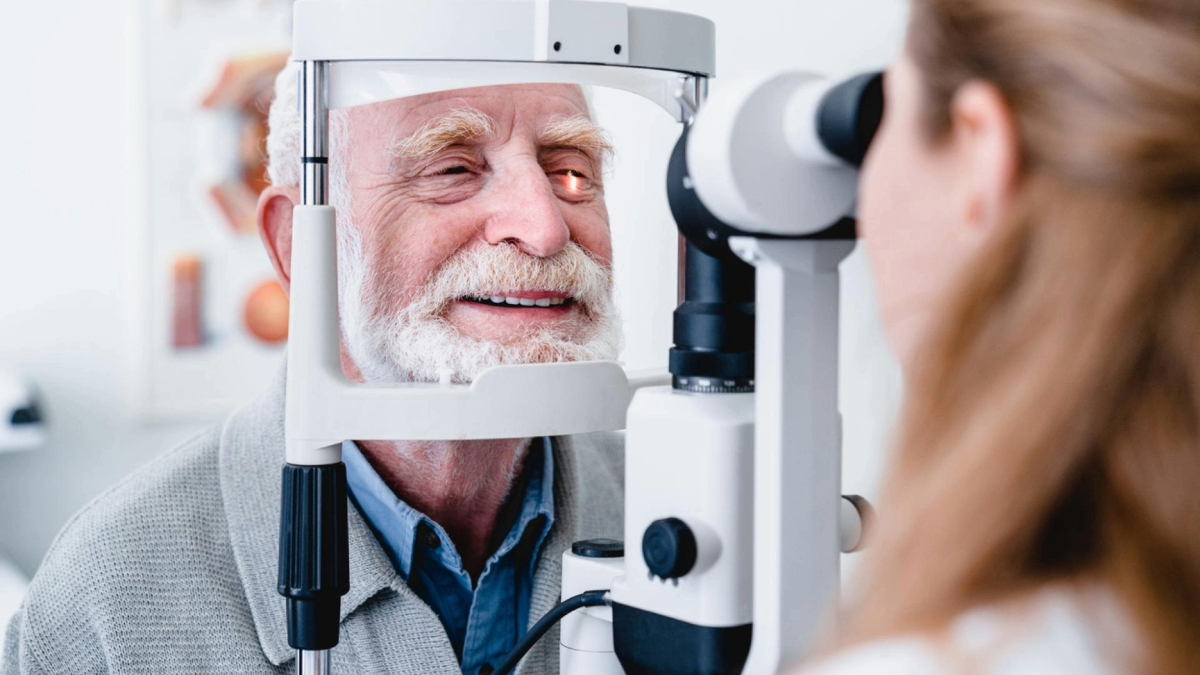
Join us for a special discussion on clinical trials for macular degeneration.
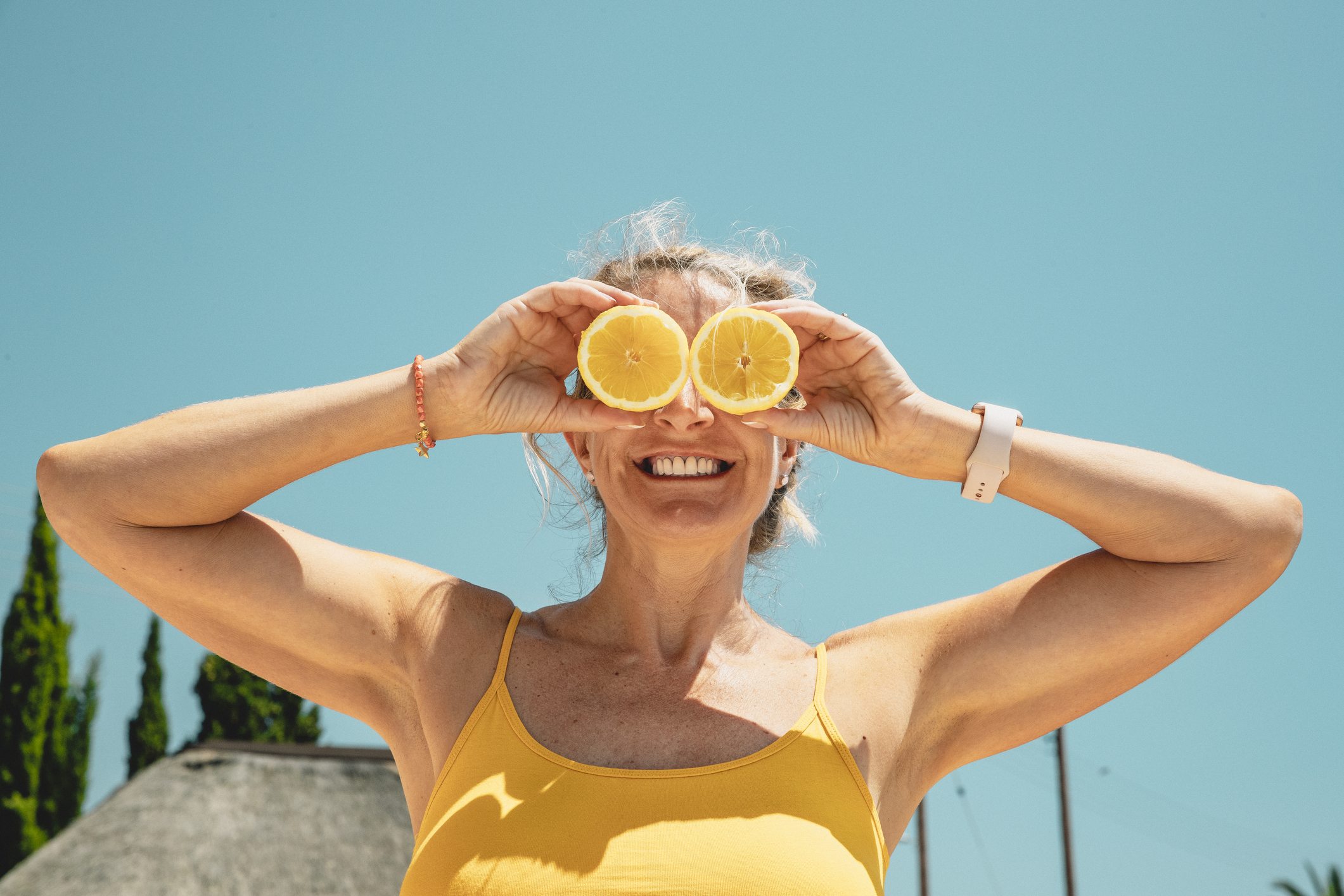
Macula 101—how this eye part works and how to keep it healthy.
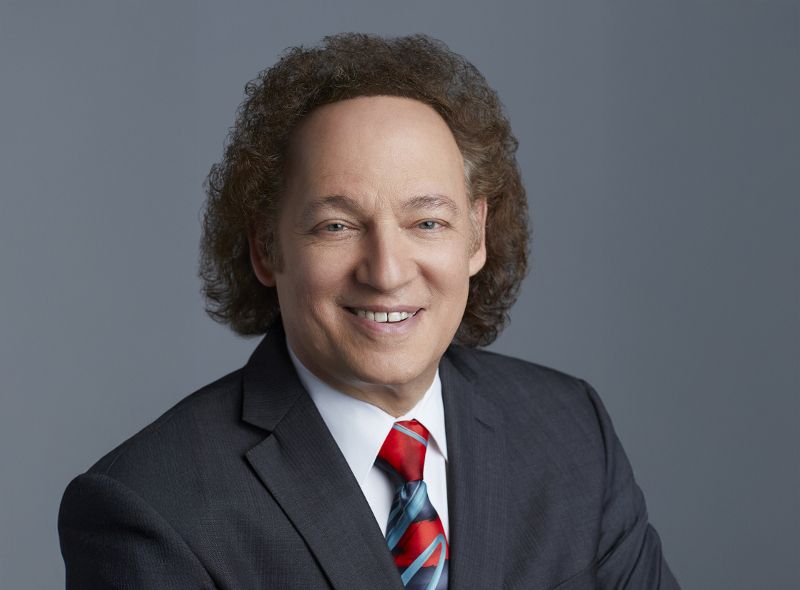
Join us for a conversation about light therapy and macular degeneration, where we’ll explore how different types of light—blue, red, and sunlight—affect the retina, the science behind light therapy, and the newly approved Valeda red light therapy
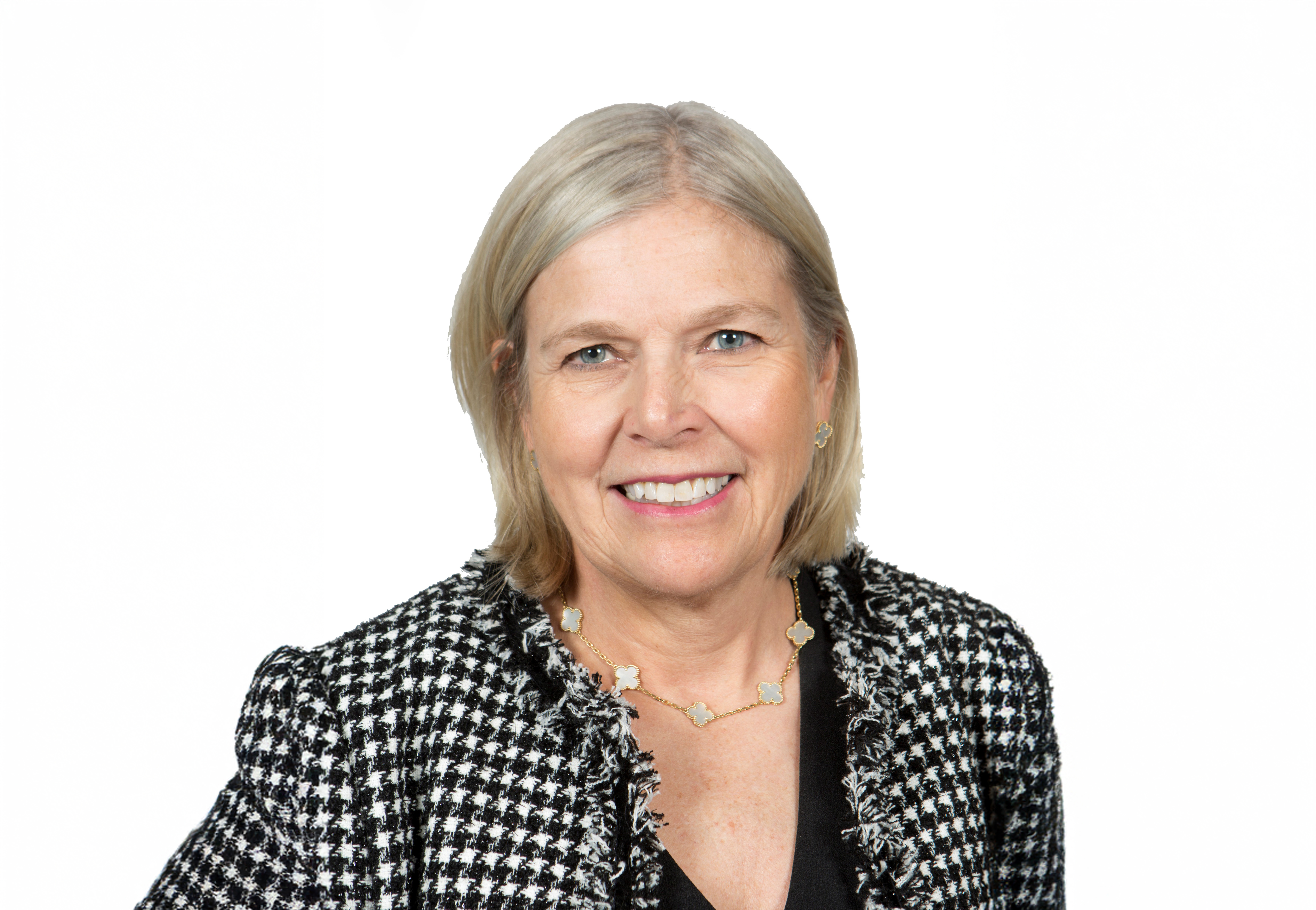
Learn about how to navigate treatment options, engage in shared decision-making with your healthcare team, and maximize your eye health.
